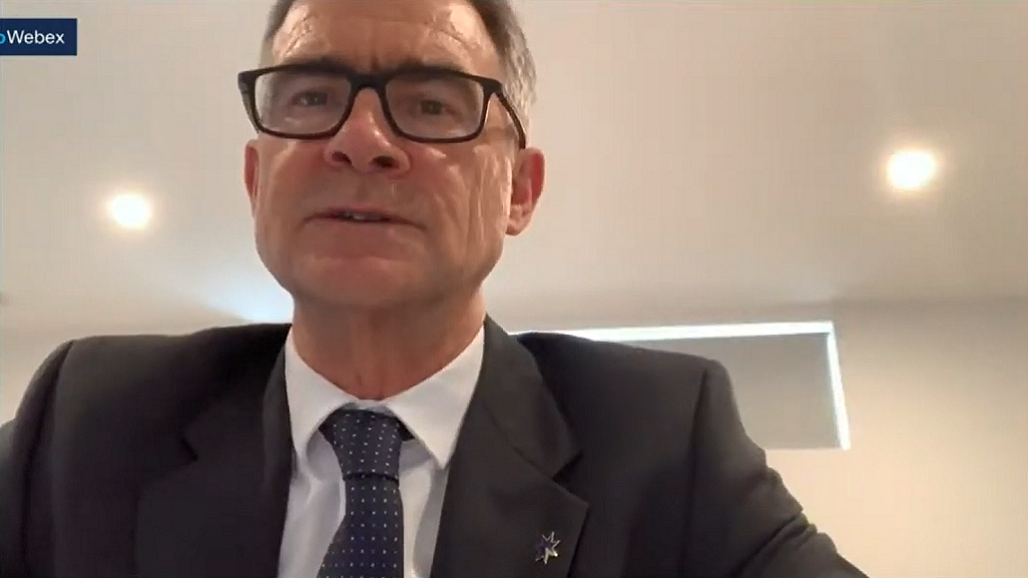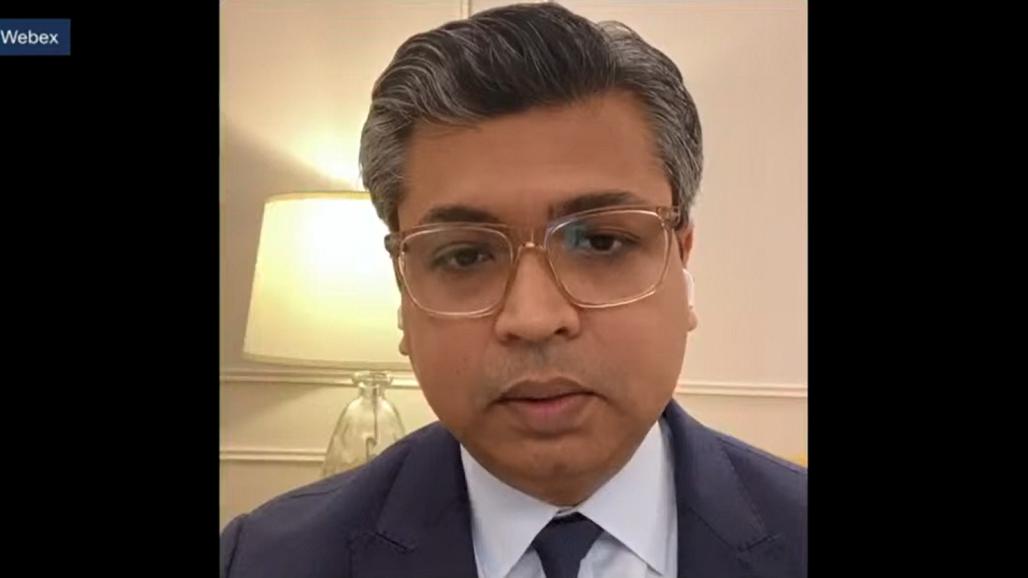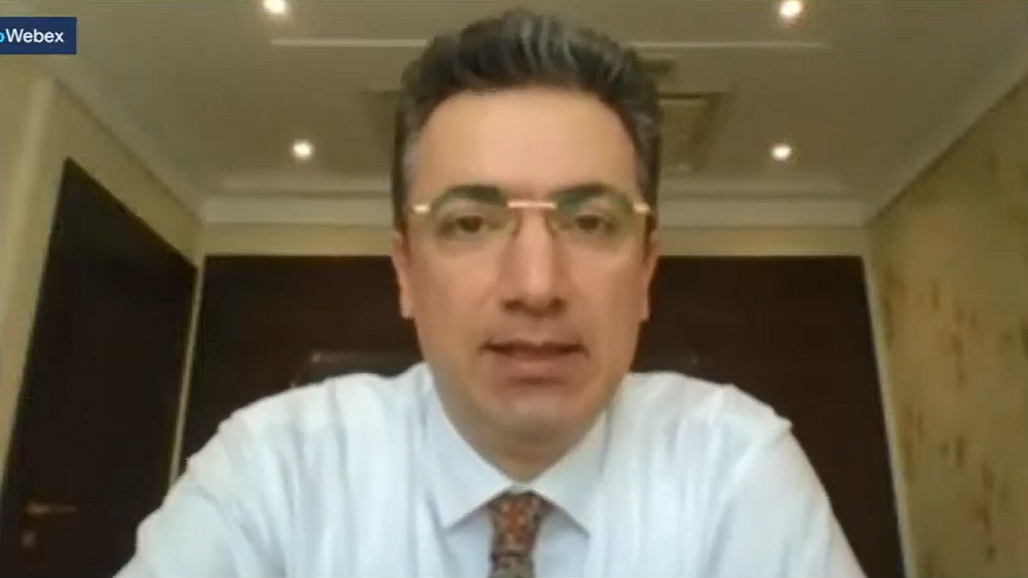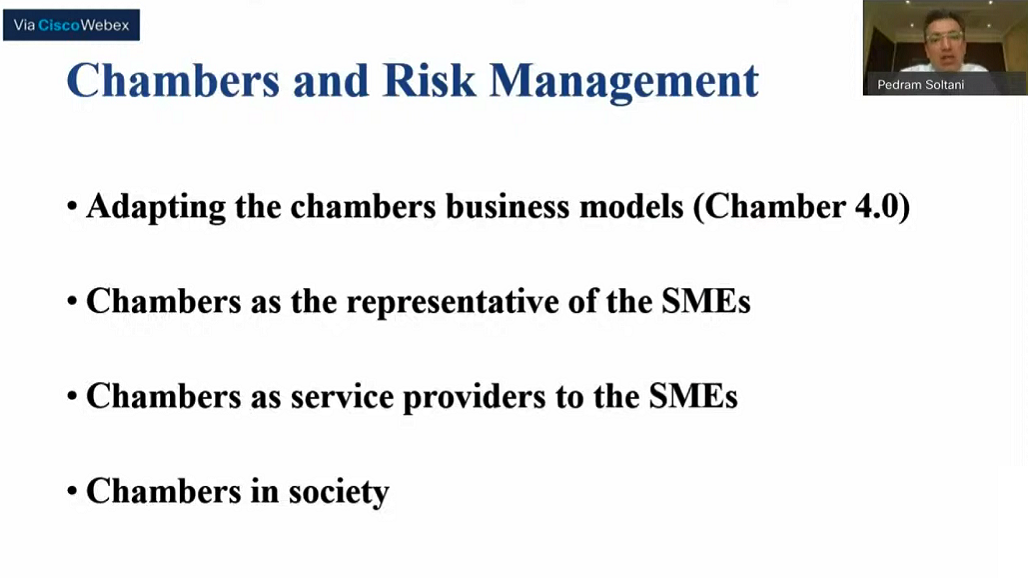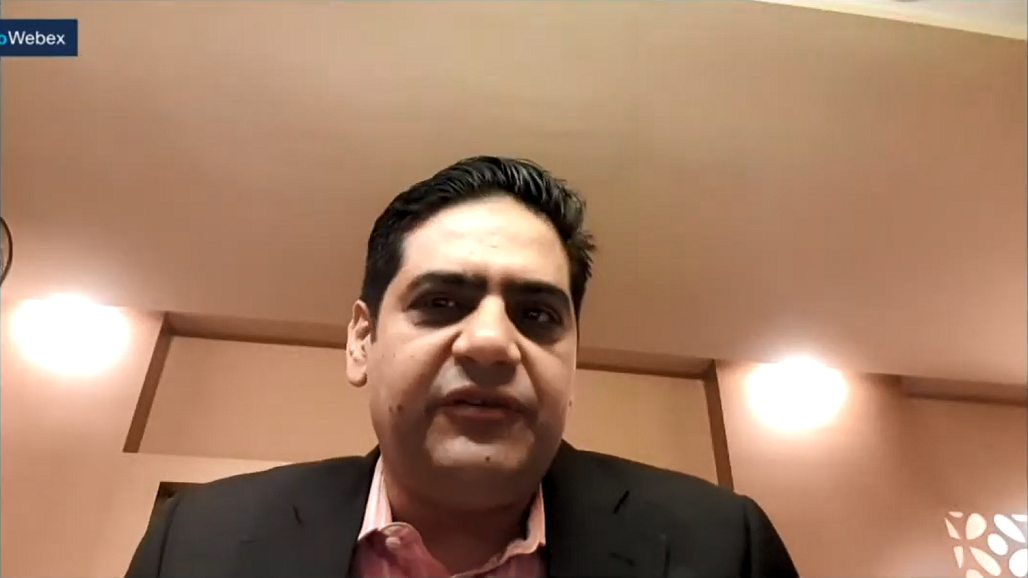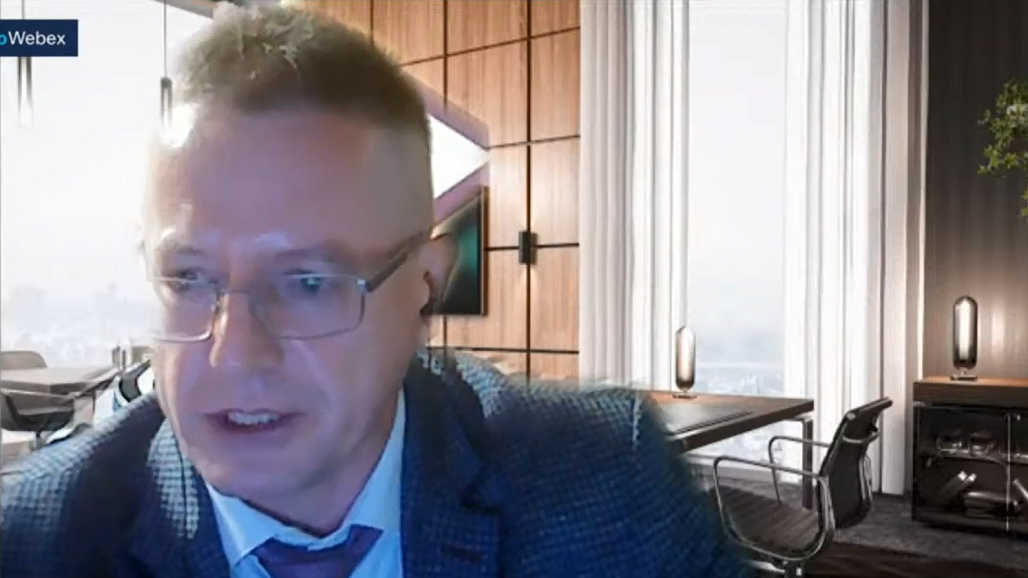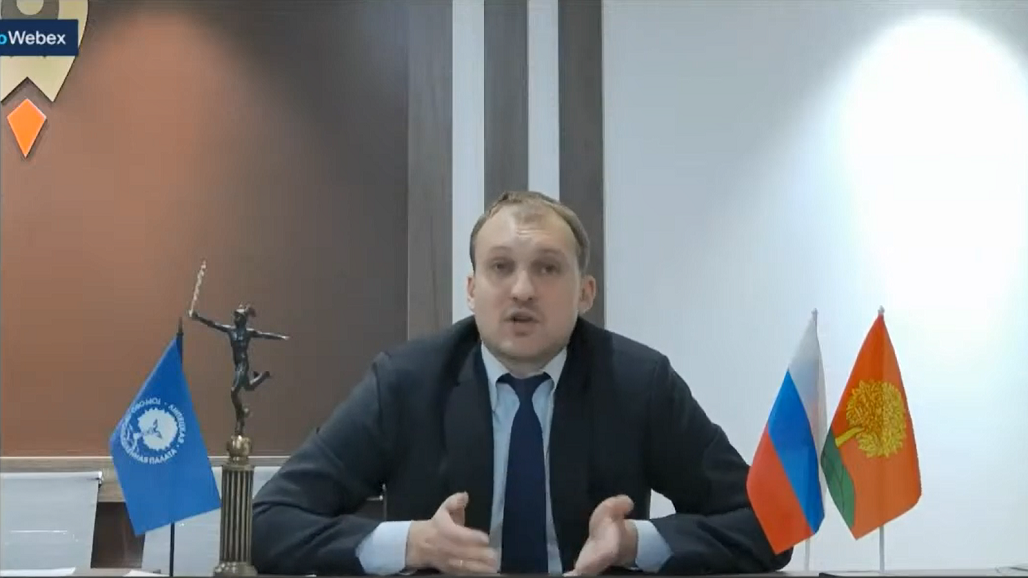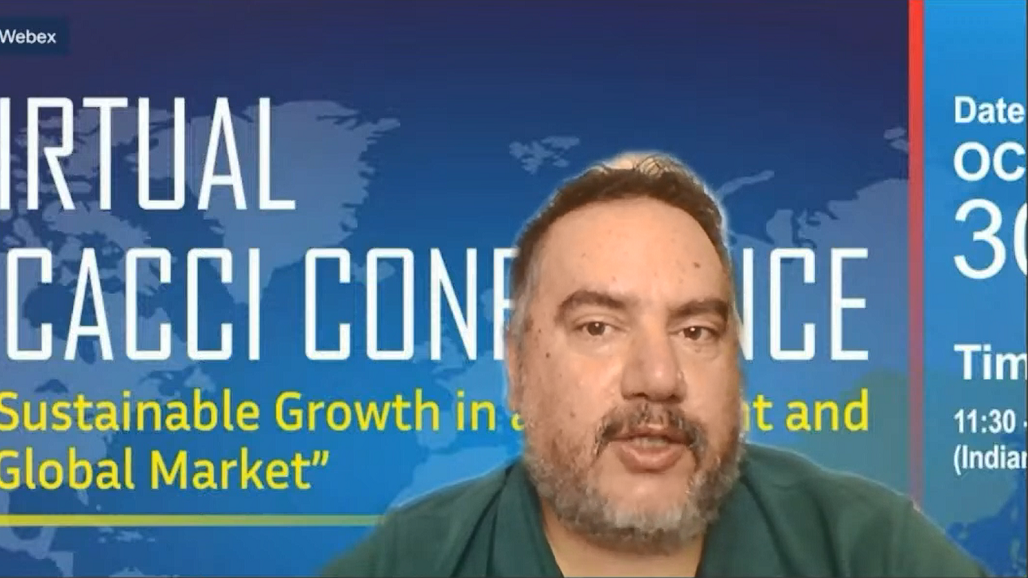CACCI Presentations
During the 34th CACCI Conference focusing on the theme “Achieving Sustainable Growth in a Turbulent and Disruptive Global Market”, seven CACCI member’s representatives gave a report of their respective chamber’s situation. The presenters were:
Mr. James Pearson
Chief Executive Officer, Australian Chamber of Commerce and Industry
 Mr. Pearson’s statement highlighted the following points:
Mr. Pearson’s statement highlighted the following points:
The world is at a critical juncture. Drivers of growth around the world were already under pressure before the COVID pandemic. Emerging challenges to some of the institutions that have helped to support global trade and growth since the end of the second world war have increased.
Supply chains have been disrupted. Inward-looking policies to assert national economy sovereignty, while appealing as a response to pressures particularly on medical supplies, risk triggering a broader shift to protectionism across multiple industry sectors. This would impact economies at a national and international scale and, in turn, slow down and disrupt the path back towards greater prosperity for all.
There is a great risk that the institutional frameworks that have supported global trading systems and enabled all nations to advance, albeit at different speeds, are no longer fit for the purpose they were created for so many decades ago. It is time that the business community of our region, stand up to help Governments to understand the essential importance of the rules-based international order; and that predictability and encouragement are hallmarks for successful cross border trade and investment flows.
Mr. Sheikh F Fahim
President, Federation of Bangladesh Chambers of Commerce and Industry and CACCI Vice President
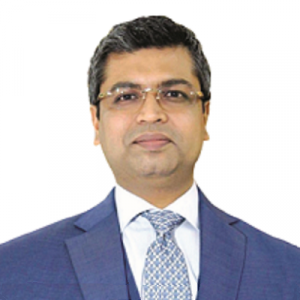 Mr. Fahim pointed out the following in his statement:
Mr. Fahim pointed out the following in his statement:
- Bangladesh’ government’s key economic interventions in response to Covid-19.
- FBCCI’s exhaustive engagements in non-fiscal and fiscal policy support for enterprises to compliment the government’s Covid-19 response, including health advisory protocols for industry and several social and philanthropic programs to aid front liners and marginalized communities.
- Bangladesh’s trade initiatives with CACCI member countries.
- FBCCI’s efforts to form global knowledge partnerships.
Dr. Pedram Soltani
Last First Vice President, Iran Chamber of Commerce, Industries, Mining and Agriculture (ICCIMA)
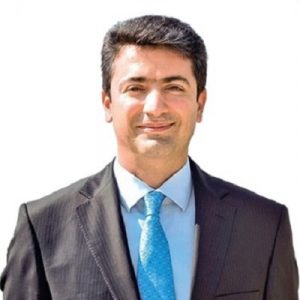 Dr. Soltani pointed out that:
Dr. Soltani pointed out that:
- Dealing with the pandemic create new risks.
- As such, chambers of commerce and industry mut adapt their business models accordingly and make them align with the mandate required for Covid-19 risk assessment.
- In defining the principles of risk and risk management, chambers of commerce and industry
- must take the position that they are representatives of small and medium enterprises (SMEs) as well as service providers to the SMEs
- In addition, chambers of commerce and industry must also not lose sight of their role in the society.
Mr. Muhammad Ali
Former Vice President, Federation of Pakistan Chambers of Commerce and Industry
 Mr. Ali underscored the following points in his statement:
Mr. Ali underscored the following points in his statement:
- The COVID-19 negatively affected the global services trade as many of the largest suppliers and consumers of services have imposed travel restrictions and social distancing measures.
- The pandemic has resulted in restriction by some countries of the world on medicines, medical equipment’s, face and eye protection, protective garments, gloves, Personal Protection Equipment (PPE) or Personal Protection Products (PPP) Sanitizers, pharmaceuticals and foodstuffs.
- This is a critical time in our history that compel us to think about policies particularly those which deals global trade of essential and necessary products. There should be policies that should not deviate under the turbulent and disruptive environment that we have seen or still observing in some parts of the world.
- Strategy for achieving for sustainable growth in a turbulent and disruptive global market consider capacity, competency, capability and comparative advantages to produce certain type of goods for human life on the best available resources under the uncertain circumstances.
- Global economic recovery is very much dependent on recovery of global supply and value chains.
Mr. Boris Stupnitsky
President, Primorsky CCI
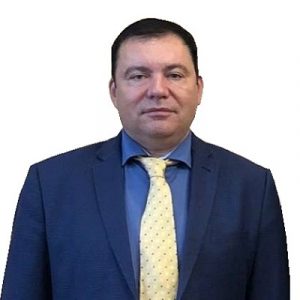 Mr. Stupnitsky stressed the importance of information exchange among chambers of commerce during turbulent times such as the Covid-a9 pandemic. With the market situation changing very fast, it becomes more important for chambers to communicate with each other more often, delivering more fresh and relevant information to their partners and clients.
Mr. Stupnitsky stressed the importance of information exchange among chambers of commerce during turbulent times such as the Covid-a9 pandemic. With the market situation changing very fast, it becomes more important for chambers to communicate with each other more often, delivering more fresh and relevant information to their partners and clients.
While it is hard to say what will be in demand in the international markets in a month or in a year, basic things will always be in demand as such food, drinking water, fuel, medicine, minerals and timber – all of which are available in the Primorsky territory.
On the other hand, Primorsky Territory can import from other countries different kinds of technological equipment for the fishing industry, food industry, and woodworking industry, as well as fruits and some types of vegetables.
Mr. Vasily Goltsov
First Vice President, Lipetsk Region CCI on behalf of Chamber of Commerce and Industry of the Russian Federation (CCIRF)
 Mr. Goltsov pointed out that it is very important to exchange experience between local/national chambers of all countries to form a unified approach to investment practices, development processes and their effects on nature, the environment, and the population, as demonstrated by the current pandemic which shows the fragility of the world.
Mr. Goltsov pointed out that it is very important to exchange experience between local/national chambers of all countries to form a unified approach to investment practices, development processes and their effects on nature, the environment, and the population, as demonstrated by the current pandemic which shows the fragility of the world.
Quoting from Mahatma Gandhi’s words (Find the goal, the resources will be found), Mr. Goltsov said that the daily work of chambers with SME customers, particularly those hit by the pandemic, confirms that indeed, chambers of commerce and industry have the resources – labor, mental, judicial, financial, tax, connection – to correct and improve on the present situation.
Mr. Çağrı Gürgür
Chief Advisor to the President of The Union of Chambers and Commodity Exchanges of Turkey (TOBB)
 Mr. Gürgür stated that the pandemic is likely to be with us for a while and its economic aftermath for a much longer time. The global recovery will be long, uneven, and uncertain. A durable economic recovery is only possible if we beat the pandemic everywhere. Therefore we need strong international cooperation, especially on vaccine development and distribution. And we could seize opportunities through digitalization, green economy and free trade.
Mr. Gürgür stated that the pandemic is likely to be with us for a while and its economic aftermath for a much longer time. The global recovery will be long, uneven, and uncertain. A durable economic recovery is only possible if we beat the pandemic everywhere. Therefore we need strong international cooperation, especially on vaccine development and distribution. And we could seize opportunities through digitalization, green economy and free trade.
We need to strengthen rule based international trade. Greater cooperation at the WTO can defuse trade tensions and provide greater certainty for international trade. We should also deal with debt. For many low-income countries, urgent action is required now. The world should provide a debt relief to poorest nations. Policymakers need to look beyond the immediate recovery and make sure that any measures implemented now also serve the longer-term need, to help generate more inclusive, smarter, and greener growth, in the future.

